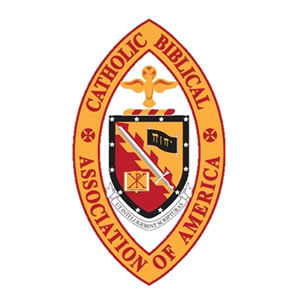Menu
- Click on the buttons below to go to the day's major presentations.
All Sessions are being held in the Harper Center. Zoom links are posted with each session.

Saturday, July 22
7:00
|
PM
|
–
|
8:30 PM
|
|
General Session
|
Auditorium
|
Panel Discussion
The Bible and Social Justice in Action: Case Studies
Panelists:
- Dr. Jerry Fischer, Kountze Commons, Kountze Memorial Lutheran Church, https://www.kountzecommons.org/
- Gina Tomes, Maternity Home Consulting,
https://maternityhomeconsulting.com/
& Vita Nova Maternity Community, https://www.vitanovamaternity.org/
- Deacon Teresa Hauser, Magdalene Omaha https://www.magdaleneomaha.org/
- Julie Kalkowski, Financial Hope Collaborative
https://www.creighton.edu/business/community-connection/financial-hope-collaborative
- Taylor Bickel, Urban Abbey
https://www.theurbanabbey.org/
- Linda Twomey, Siena Francis House
https://sienafrancis.org
Facilitator:
Sherri Brown, Creighton University
|

Micah 6:8 by Sally Mae Joseph, © 2005,
The Saint John’s Bible, Saint John’s University, Collegeville, MN, USA. All rights reserved.
|

Sunday, July 23
|
|
|
|
|
|
|
Meeting Room
|
11:00
|
AM
|
–
|
12:00 PM
|
|
Simultaneous Session
|
OT:
NT:
|
|
Old Testament
The Psalms and the Speaking World:
Poetry, Animacy, and Enchantment
|
Meeting Room 2057/2058
|
This paper explores the phenomenon of the speech of the natural world in the Psalms, which
scholars have explained alternatively as a poetic technique, or as a residue of an animistic
worldview. I argue, following the work of new animist philosopher Baptiste Morizot, that the
metaphorical imagination necessary for the attentive practices of tracking helps explain why the
two domains overlap: poetic technique is the locus of animistic claims in the Hebrew Bible
precisely because literary strategies such as anthropomorphism offer intellectual tools for
wrestling with the uncanny sense that humans are both enmeshed in the more-than-human world,
and also somehow distinct within it. We might usefully describe the sense of the world as one of
“enchantment.”
 Presenter: Elaine T. James, Princeton Theological Seminary
Presenter: Elaine T. James, Princeton Theological Seminary
Elaine T. James is Associate Professor of Old Testament at Princeton Theological Seminary. She is the author of An Invitation to Biblical Poetry (Oxford University Press, 2021) and Landscapes of the Song of Songs: Poetry and Place (Oxford University Press, 2017). She enjoys being in the mountains with her family.
New Testament
The Creation Theme in John: Prologue and Passion
|
Meeting Room 4068/4069
|
The Prologue of John follows the structure of the Creation account in Genesis 1 and it makes clear that believers will be born as God’s children (John 1:12-13). The following narrative provides clues as to how this ‘birth’ will happen. What is promised is then fulfilled at the cross when the creation theme returns and children are “born anew”.
 Presenter: Mary L. Coloe, P.B.V.M.
Presenter: Mary L. Coloe, P.B.V.M.
Professor Mary Coloe pbvm has recently retired from full-time teaching within the University of Divinity, Melbourne.

Sunday, July 23
8:00
|
PM
|
–
|
8:45 PM
|
|
General Session
|
Auditorium
|
President's Address
“We are the wicked!”: North American Readers and Voices Psalms 1 and 37
The terms “wicked” occurs in the first verse of the first psalm. The term figures prominently in Psalm 37 that celebrates the certainty of retribution against the wicked. This paper will first examine the term from the hermeneutical perspective of historical critical analysis in these two psalms. Second the presentation will put forth of a North American reader use of this term in the Psalter from a socially aware reader-response informed by the hermeneutical challenges of the Pontifical Biblical Commission on Reading the Bible in the Church. The categories of actualization and inculturation feminist writers have pointed out the importance of hearing the text in a voice. The paper will explore how one might hear these texts in a non-dominant voice.
 Stephen Breck Reid
Stephen Breck Reid
holds a B.S. in religion from Manchester University, an M.Div. from Bethany Theological Seminary, and a Ph.D. from Emory University. He has served on several seminary faculties including Academic Dean at Bethany Theological Seminary. He is currently Vice Provost for Faculty Diversity & Belonging at Baylor University. He is the author or editor of such books as, Experience and Traditions. A Primer in Black Biblical Hermeneutics (Abingdon 1991), Listening In: A Multicultural Reading of the Psalms (Abingdon, 1997), Prophets and Paradigms: Essays in Honor of Gene M. Tucker (Sheffield Academic Press, 1996) and Psalms and Practice. Worship, Virtue, and Authority (Liturgical Press, 2001). He and his wife Kathy have authored Uncovering Racism. (Brethren Press, 2000)
 Monday, July 24
Monday, July 24
|
|
|
|
|
|
|
Meeting Room
|
11:00
|
AM
|
–
|
12:00 PM
|
|
Simultaneous Session
|
OT:
NT:
|
2057/2058
4068/4069
|
Old Testament
The Impact of Deuteronomy on Ben Sira’s Teaching
|
Meeting Room 2057/2058
Virtual
|
In the introduction to his commentary, under the title of “The Teaching of Ben Sira”, Alexander A. Di Lella
describes the teaching of the sage as traditional or conservative and founded on previous biblical tradition. According to him, Ben Sira’s pervading theological outlook is Deuteronomic. The question raised
by this statement has been object of scholarly debate. Some, including ourselves, are convinced, like Di Lella,
of the influence of Deuteronomy and of the Deuteronomistic literature on the work of Ben Sira (Friedrich V. Reiterer, Timo Veijola, Greg S. Goering). Others, more reticent in this regard, adopt instead a cautious position (James L. Crenshaw, Pancratius C. Beentjes).
For reasons of time and space we have decided to limit our enquiry to the book of Deuteronomy and,
in particular, the word pair “fear of God – love for God”, a fundamental aspect of its theology. In this paper, then, we shall illustrate the impact of Deuteronomy on the book of Ben Sira through the analysis of Sir 2:15-17
and 7:29-31, two texts in which the sage adopts the aforementioned word pair and incorporates it in his
teaching. The analysis of the texts will be preceded by a brief presentation of specific studies on the subject.
 Presenter: Nuria Calduch-Benages, Pontifical Gregorian University
Presenter: Nuria Calduch-Benages, Pontifical Gregorian University
Nuria Calduch-Benages is Professor of Old Testament at the Pontifical Gregorian University and Invited Professor at the Pontifical Biblical Institute in Rome, Italy. Her research focuses on wisdom literature, deuterocanonical books, especially Sirach, biblical anthropology, biblical metaphors, and women studies.
New Testament
In Paul We Trust, But Why? The Politics of
Interpreting the Apostle after the Reformation
|
Meeting Room 4068/4069
|
The field of Pauline studies often treats Paul as an objective, trustworthy presenter of his theological ideas and autobiographical statements. This paper will trace the roots of this modern situation from post-Reformation theology that elevated Paul above the other apostles and other parts of the New Testament, before considering how treating Paul through the heuristic lens of a politician who is responding to the (potential) loss of authority over a community and conflict with opponents can open doors to reading Paul's attacks on his competitors, his autobiography, and even his statements on the law and the cross, in a new light.
 Presenter:Timothy M. Milinovich, Dominican University
Presenter:Timothy M. Milinovich, Dominican University
Tim Milinovich is Professor of Biblical Theology at Rosary College of Arts and Sciences, Dominican University. . He is also an instructor for St. Meinrad Seminary's Permanent Diaconate Formation program and has taught previously at the University of the Incarnate Word in San Antonio.

Monday, July 24
7:30
|
PM
|
–
|
9:00 PM
|
|
General Session
|
Auditorium
|
Panel Discussion
Biblical Studies from the CBA: Bridging the Gap
Between the Academy and the Pews
|
Panelists
-
José Enrique Aguilar Chiu
Saint Joseph's Seminary & College
- Frank J. Matera
The Catholic University of America, emeritus
-
Ronald D. Witherup, P.S.S.
St. Mary’s Seminary & University
-
Francis J. Moloney, S.D.B.
Catholic Theological College
-
Sherri Brown
Creighton University
-
Bradley C. Gregory
The Catholic University of America
-
Sheila E. McGinn
John Carroll University
|
 |
|
Moderator
Archie Wright
Executive Director of CBA
|
|
|
 Tuesday, July 25
Tuesday, July 25
11:00
|
AM
|
–
|
12:00 PM
|
|
General Session
|
Auditorium
|
Motherhood in Jeremiah
The book of Jeremiah includes multiple references and allusions to mothers and motherhood. While there are some positive associations, such as Jeremiah’s call from within his mother’s womb (Jer 1:5) and the image of women in labor resettling after exile (31:8), most often motherhood is connected to pain, suffering, and emasculation. This presentation explores the contexts in which motherhood imagery is employed, and it considers how this imagery offers ways of reading and interpreting the larger book of Jeremiah.
 Presenter: Jaime L. Waters, Boston College School of Theology
Presenter: Jaime L. Waters, Boston College School of Theology
and Ministry
Jaime L. Waters is associate professor of Old Testament at the Boston College School of
Theology and Ministry.
 EVENT DETAILS
EVENT DETAILS  SCHEDULE
SCHEDULE  AGM AssiStance
AGM AssiStance
 Presenter: Elaine T. James, Princeton Theological Seminary
Presenter: Elaine T. James, Princeton Theological Seminary Presenter: Mary L. Coloe, P.B.V.M.
Presenter: Mary L. Coloe, P.B.V.M.
 Stephen Breck Reid
Stephen Breck Reid Monday, July 24
Monday, July 24 Presenter: Nuria Calduch-Benages, Pontifical Gregorian University
Presenter: Nuria Calduch-Benages, Pontifical Gregorian University Presenter:Timothy M. Milinovich, Dominican University
Presenter:Timothy M. Milinovich, Dominican University
 Tuesday, July 25
Tuesday, July 25 Presenter: Jaime L. Waters, Boston College School of Theology
Presenter: Jaime L. Waters, Boston College School of Theology Leave a detailed message. The Catholic Biblical Association of America (202)319-5519Website, Login & Registration Assistance
Leave a detailed message. The Catholic Biblical Association of America (202)319-5519Website, Login & Registration Assistance M.A., Ph.D. Executive Director The Catholic Biblical Association of America (757)374-3594Executive Director
M.A., Ph.D. Executive Director The Catholic Biblical Association of America (757)374-3594Executive Director M.Div., Th.M., Ph.D. Events and Technology Director The Catholic Biblical Association of America (989)598-0203Events & Technology Director
M.Div., Th.M., Ph.D. Events and Technology Director The Catholic Biblical Association of America (989)598-0203Events & Technology Director

